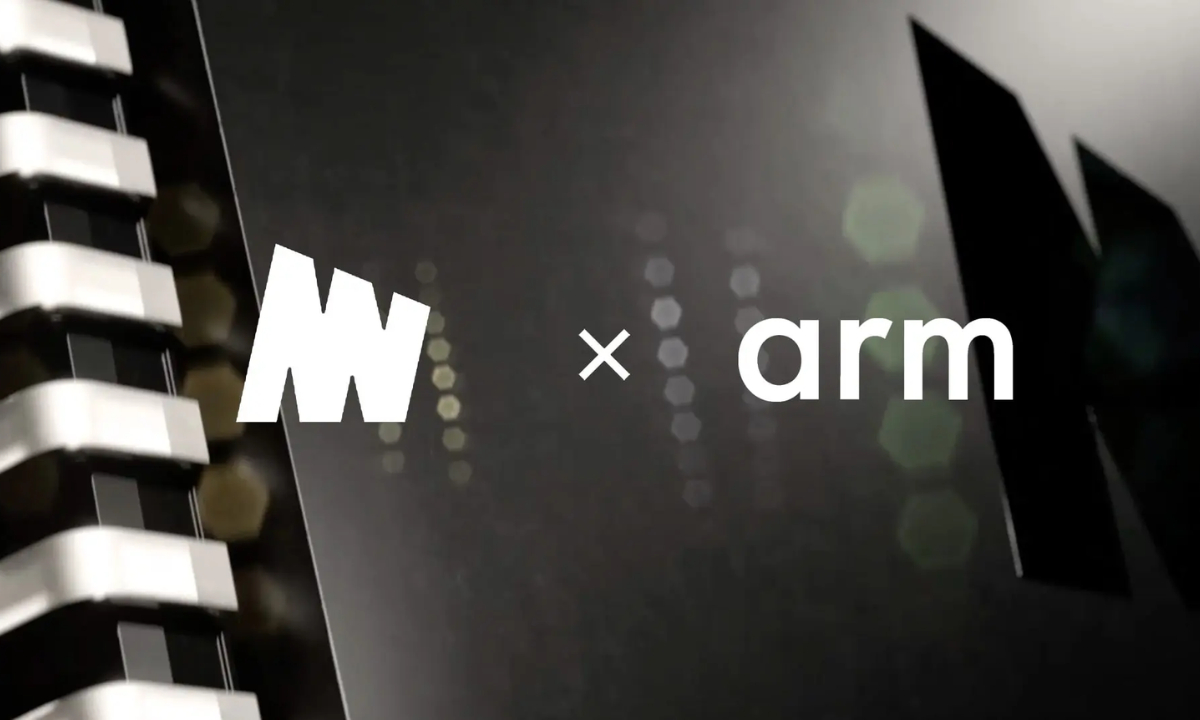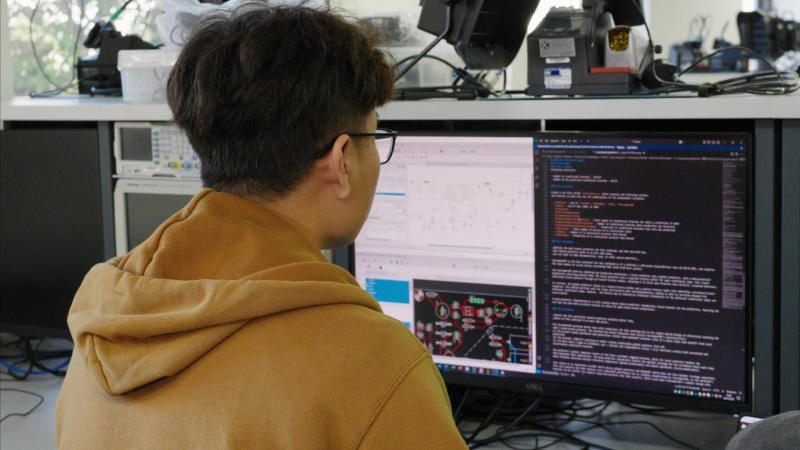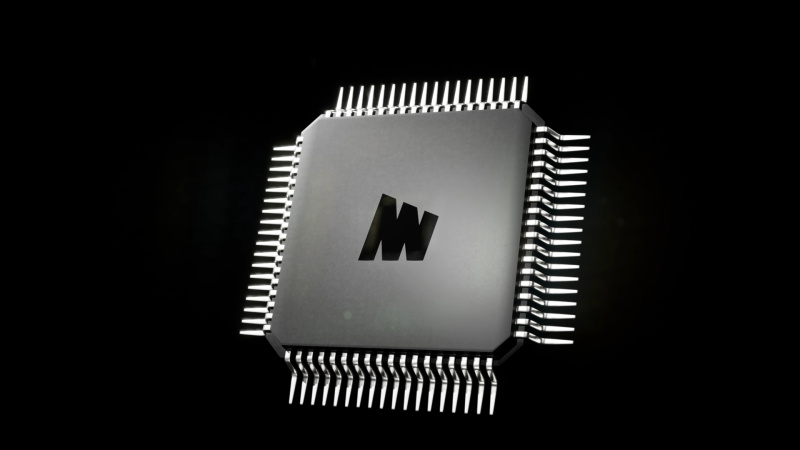
Minima, Siemens and ARM Develop World’s First Blockchain-on-Chip Prototype
London, United Kingdom, October 28th, 2025, Chainwire
A landmark announcement from the UK signals a major leap in blockchain, IoT, and autonomous technology as the University of Southampton and Minima, together with industry leaders Siemens Cre8Ventures and ARM Flexible Access, confirm the January 2026 prototype launch of the world’s first industrial-grade microchip capable of running a full blockchain node, to be initially embedded within commercial drone hardware.
With $1.352 trillion in data infrastructure investment driving 4% of U.S. GDP and a global semiconductor market valued at over $750 billion, this R&D alliance marks a critical convergence of blockchain & AI in silicon – defining a new standard for secure, self-sovereign machine intelligence and device-level trust.
While the project’s initial focus is on drones, the underlying chain-on-chip architecture has transformative potential far beyond the skies. Applications in autonomous vehicles, robotics, industrial IoT, and smart manufacturing stand to benefit.

Anywhere machines must operate independently, verify their actions, and coordinate securely without relying on centralised infrastructure. By embedding trust at the silicon level, this collaboration lays the foundation for a new class of intelligent, self-verifying systems across land, air, and industry.
The partnership, led by Southampton’s School of Electronics and Computer Science, directly addresses the challenges of deploying autonomous, auditable systems at scale in the $60 billion global commercial drone sector. Minima’s ultra-lightweight Layer 1 blockchain will be directly integrated onto drone flight controllers, enabling every drone to operate as a full node—independent, self-verifying, and immune to third-party bottlenecks or centralized vulnerabilities. This forms the core of a tamper-proof, decentralized aerial network, redefining distributed ledger technology in edge robotics and beyond.
Blockchain and IoT—Device-Level Trust, Real-Time Attestation
At the heart of the project is Minima’s Integritas toolkit. The high-assurance verification tool delivers on-device, standards-compliant time-stamping and data attestation, with direct alignment to ASTM/EASA requirements. Unlike traditional, cloud-dependent approaches, this innovation means drones and industrial IoT devices can autonomously manage and verify every transaction, sensor log, or mission record in real time, regardless of connectivity or operational context.

“This collaboration pioneers what true machine autonomy looks like in the age of Web3 and distributed IoT,” said Dr Ivan Ling, lead academic at the University of Southampton. “We’re combining Minima’s blockchain architecture and hardware acceleration with robust academic R&D to supercharge the trust layer underpinning edge devices—mapping the direction of future decentralized networks.”
Deep Tech Collaboration: Secure by Design, Scale from Day One
Development of the hardware accelerator will draw on Siemens’ advanced EDA toolchains and ARM security-rich IP, embedded into Southampton’s electronics innovation environment. Siemens Cre8Ventures’ Higher Education Program ensures the project meets hardened industry standards and regulatory requirements at every stage, accelerating academic breakthroughs into real-world, industrial solutions.
A proof-of-concept drone is scheduled for Q1 2026 validation, with independent assessment from regulators, UAV manufacturers, and IoT security experts. The vision: create a universally adaptable reference architecture, enabling scalable, standards-based deployment of blockchain and decentralized intelligence across smart hardware and machine fleets.
Carson Bradbury, Director, Siemens Cre8Ventures, noted: “Embedding blockchain deep within silicon infrastructure paves the way for programmable trust across the exponential growth of industrial IoT and connected machines.”
Minima CEO Hugo Feiler added: “By taking blockchain to the processor level, we unlock fully autonomous, proven systems—no intermediaries, no permissioning, just built-in transparency and trust for any connected device, anywhere.”
Shaping the Future of Web3, IoT, and Autonomous Machines
Professor Harold Chong, Head of Sustainable Electronic Technologies at Southampton, concluded: “This world-first partnership marries secure, decentralized software and embedded hardware innovation. It charts new territory for energy-efficient, tamper-resistant devices and brings closer the era of autonomous, trustworthy machine networks across every sector touched by IoT and blockchain.”

The implications are game-changing for the blockchain, IoT, and deep tech landscapes:
- Trustless, verifiable sensor and mission logs at the edge
- Immutable audit trails for smart city, industrial, and supply-chain devices
- Tamper-proof, real-time data for connected vehicles, drones, and critical infrastructure
- Autonomous machine fleets capable of trusted self-organisation, collaboration, and reporting
- Scalable architecture for Web3 developers, IoT engineers, and compliance-driven industries
With the University of Southampton, Minima, Siemens, and ARM working together, this initiative signals a new era of transparent, reliable, and secure machine intelligence—defining the future foundation for decentralized, autonomous networks worldwide.
About Minima
Minima is a next-generation blockchain protocol designed to run entirely on embedded and mobile devices. Minima enables every device to act as a full node, validating transactions, securing data, and communicating peer-to-peer without reliance on servers. The protocol’s lightweight design and built-in programmability unlock new possibilities for embedded intelligence, digital sovereignty, and machine-to-machine coordination at the edge.
Users can learn more at: www.minima.global
X: Minima (@Minima_Global) / X
About the University of Southampton
The University of Southampton drives original thinking, turns knowledge into action and impact, and creates solutions to the world’s challenges. The company is among the top 100 institutions globally (QS World University Rankings 2025). Their academics are leaders in their fields, forging links with high-profile international businesses and organisations, and inspiring a 24,000-strong community of exceptional students, from over 135 countries worldwide. Through their high-quality education, the University helps students on a journey of discovery to realise their potential and join their global network of over 300,000 alumni.
www.southampton.ac.uk/news/contact-press-team.page
Follow us on X: https://twitter.com/UoSMedia
About Siemens Cre8Ventures
Siemens Cre8Ventures is Siemens’ innovation and venturing initiative focused on accelerating emerging technologies through collaborative partnerships in academia
and industry. Siemens is a global leader in digital industries, smart infrastructure, and simulation-led development across sectors, including aerospace, mobility, and industrial automation.
About ARM
ARM is the world’s leading provider of compute platforms, powering everything from smartphones and supercomputers to autonomous vehicles and industrial controllers. ARM’s mission is to build the future of secure, energy-efficient computing enabling innovation from silicon to software, across the entire edge-to-cloud spectrum.
